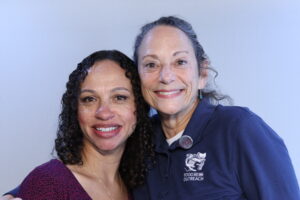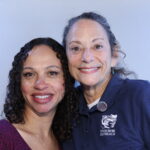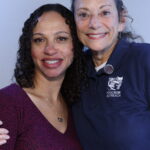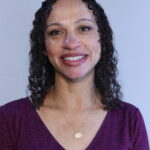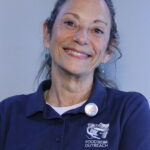Description
Colleagues Opal Jones (47) and Julie Lock (68) talk about their experience as female leaders, their dedication to serving their community, and the importance of treating others with kindness.Subject Log / Time Code
Opal Jones (OJ) and Julie Lock (JL) talk about what it's like for JL to be 68 years old.
JL remembers the first day she met OJ.
OJ reflects on her 15 year career journey at Doorways.
OJ and JL talk about gaining the voice to stand up for themselves as women.
JL and OJ talk about the legacies they hope to leave.
OJ and JL talk about the founding of Doorways and Food Outreach.
OJ emphasizes how providing a community for their clients can be just as valuable as providing a roof over their heads.
OJ and JL talk about what service means to them.
Participants
- Opal Jones
- Julie Lock
